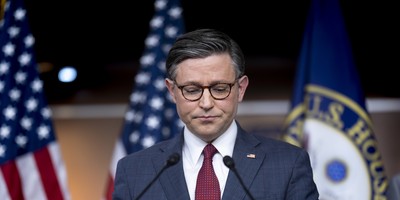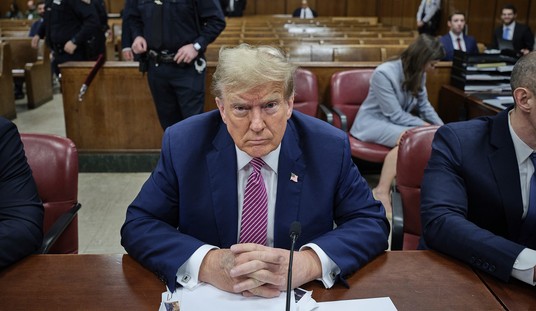"Washington, right now, is broken," said Vice President Biden in February. "I've never seen it this dysfunctional."
Back then, Biden was just one of many who complained that partisan rancor and gamesmanship had brought the functioning of the federal government virtually to a halt, making it impossible for the president and lawmakers to get anything done. "Washington is broken" became the political world's conventional wisdom.
Fast-forward to Dec. 22. Celebrating the passage of a new law allowing homosexuals to serve openly in the military, President Obama said the event marked "the culmination of two of the most productive years in the history of Congress." Senate Majority Leader Harry Reid and others echoed the president's assessment.
What happened? How could a government that was broken just a few months earlier suddenly become so productive?
The answer is, Washington was never broken. The Democratic majorities in the House and Senate passed, mostly by themselves, a remarkable slate of legislation in 2009 and 2010: national health care, the stimulus, financial regulation, DADT repeal, a hate-crimes bill, the START treaty and more. They had big majorities -- 255 seats in the House, and 60 in the Senate -- and in some cases were willing to disregard both public opinion and the electoral consequences of their actions. So they got a lot done.
Democrats and their partisans in the press complained about Washington being broken only at those times when their agenda was imperiled. Vice President Biden's statement, for example, came after the election of Massachusetts Republican Sen. Scott Brown took away the Democrats' filibuster-proof majority in the Senate. Just a few weeks later, when Barack Obama signed the national healthcare bill into law, Biden was all smiles.
Now, after the lame-duck session, Democratic leaders are happy again. But it's only temporary. As the new year approaches, get ready for a new round of Democratic Washington-is-broken grumbling.
Recommended
With a significantly smaller, 53-seat majority in the Senate, Democrats will no longer be able to pass contentious legislation all by themselves or with just one or two Republican votes. On the other side, Republicans, with 47 votes, will no longer have to achieve perfect unity to sustain a filibuster and stop objectionable legislation. They'll be able to lose three, four, five, even six members of the GOP caucus and still stop a bill.
That's why you're hearing confidence from the likes of Minority Leader Mitch McConnell and deficit hawk Sen. Tom Coburn. "There aren't going to be any big spending bills," Coburn told ABC recently when asked to assess prospects for legislation next year.
It's also why you're hearing new rumbling about what many Democrats consider the ultimate fix for the Washington-is-broken problem: eliminating the filibuster. A perennial complaint, unhappiness with the filibuster is likely to reach new heights among Democrats in the next few months. Already, the entire returning Democratic caucus has signed a letter by Sens. Carl Levin and Mark Warner calling for rules changes that will make it easier to kill filibusters. Some are also hoping to make it possible to change the Senate's rules with a simple majority vote, rather than the two-thirds vote required now. That way, Democrats could do anything they want, even without that 60-vote majority.
It won't happen; the votes aren't there. It could even be that Democrats are pushing the anti-filibuster argument so loudly because they know it won't happen. That way, they can position themselves as favoring "filibuster reform" with the comfort of knowing they'll still have the filibuster the next time they're in the minority, which might be soon.
Meanwhile, new voices are taking up the Washington-is-broken crusade. At the recent New York rollout of the Democratic-leaning group No Labels, speaker after speaker pushed the idea that "hyperpartisanship" in Washington has prevented elected leaders from "getting things done." They're looking for some still-unspecified new approach to break the partisan deadlock.
But why shouldn't it be hard to pass massively expensive legislation that fundamentally changes the lives of millions of Americans? If one party wins enough votes to pass bills on its own, as Democrats did in 2008, then it can do what it wants -- if it is prepared to pay the electoral price. But in a divided government, there must be some agreement between the parties before legislation can move forward. And if there isn't agreement, then maybe the legislation shouldn't move forward. When that happens, Washington isn't broken. It's working.

























Join the conversation as a VIP Member